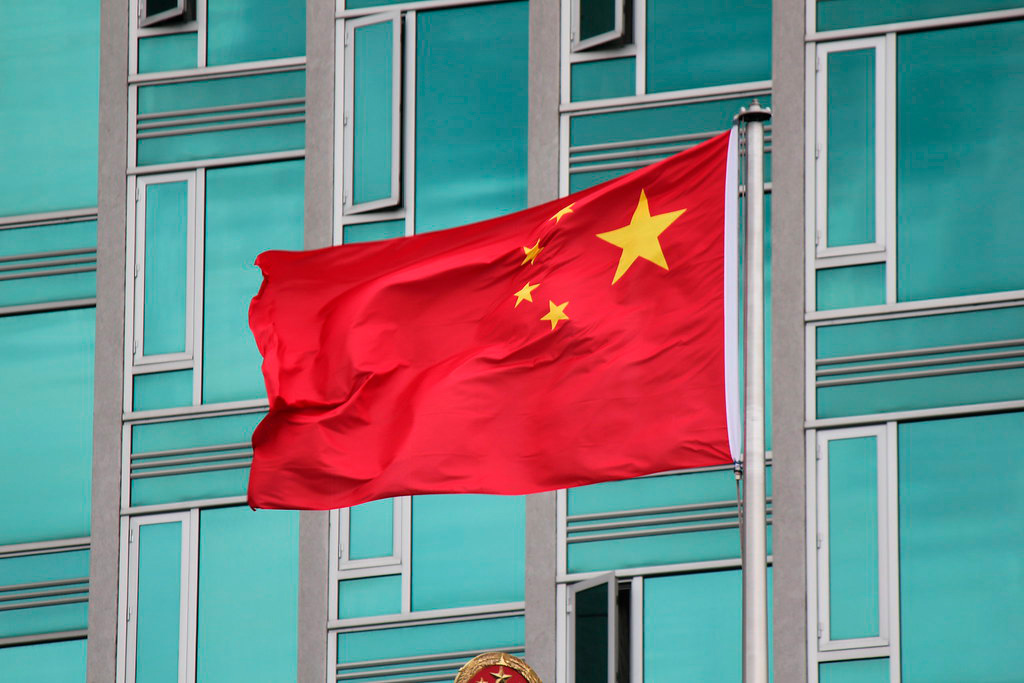In a belated but essential move, U.S. members of Congress recently introduced the BIOSECURE Act on Jan. 25, aiming to prohibit the use of taxpayer dollars for genetic companies in China collaborating with the People’s Liberation Army (PLA). While the proposed law is a step in the right direction, it prompts a crucial question: How has the United States allowed such perilous practices to persist for so long, necessitating legislative action?
The legislation sheds light on the need for an all-encompassing government and societal effort, dating back to at least the Tiananmen Square massacre in 1989, to sever dependence on China, particularly companies entwined with its military apparatus. Genetic data, especially, should have been safeguarded from release to Beijing, with a focus on thwarting the Chinese Communist Party’s (CCP) potential exploitation.
Rep. Mike Gallagher (R-Wis.), chair of the House Select Committee on the CCP, emphasized that the bill aims to halt the Chinese Communist Party’s use of U.S. genetic data for nefarious purposes, including genetic targeting of American citizens with bioweapons. The spotlight falls on the Beijing Genomics Institute (BGI), accused of collecting genetic data from Americans for research collaboration with the Chinese military.
“The CCP will undoubtedly use the genetic data collected by BGI to further its malign aggression, potentially even to develop a bioweapon used to target the American people,” warns Rep. Gallagher. The bill’s bipartisan nature, co-sponsored by both Democratic and Republican leaders, underscores the urgency and non-partisan importance of addressing this national security concern.
While the proposed legislation is a welcome move, questions arise about the delay in implementing such common-sense policies. The threat of bespoke bioweapons, as highlighted by Rep. Gallagher, is not a far-fetched notion but a technology the CCP is actively seeking to perfect. The bill’s introduction is a reactive defense rather than a proactive offense, underscoring the need for broader and more preemptive measures.
BGI’s spending on lobbying in the United States, reported at $420,000 in 2023, adds another layer of concern. Such activities by companies from adversarial nations, particularly those potentially developing genocidal capabilities, should be deemed illegal. The CCP’s track record, not only in genetic targeting for bioweapons but also in weaponizing fentanyl as a diplomatic leverage over Taiwan, raises serious alarms.
Global markets have responded to the bill, with the stock values of mentioned Chinese companies plummeting by as much as 32 percent. This reaction underscores the financial repercussions faced by companies linked to the CCP and its military apparatus, emphasizing the need for decisive action.
Drawing parallels with the National Defense Authorization Act’s ban on Chinese drones in 2020, the proposed law against the use of Chinese genetic companies aligns with similar bans on drones and telecom services. Bill Evanina, the former top U.S. counterintelligence official, stresses the potential for intelligence gathering for nefarious purposes, reminiscent of Huawei’s concerns.
In retrospect, the U.S. government’s reliance on Chinese exports, including genetic services, should have been curtailed much earlier. The CCP’s interest in genetic data extends beyond espionage, with ambitions of creating super-soldiers by leveraging knowledge of genetic deficiencies or engineering troops using DNA from specific regions.
While the bill is commendable, it falls short of addressing the root issue proactively. Laws of this nature should not be limited to government appropriations but should apply universally to the U.S. public and carry global implications. Extraterritorial laws against the CCP may be a challenge, but the urgency of protecting genetic data from a genocidal and totalitarian entity like the CCP should outweigh political considerations.
The global nature of the CCP threat requires generalized global defenses, not whack-a-mole U.S. laws. If we only protect ourselves or limit our own purchases from China through much-needed greater tariffs, Beijing’s aggressive commerce will threaten America from elsewhere. Its cheap intermediate exports will empower other countries, including adversary states, to out-compete American manufacturers, for example.
We need more limits on CCP technology and higher tariffs on China’s exports. But, to be fully effective, these measures must be more creative, cutting edge, and global—including a global tax on China. Limited laws like the most recent bill are just “steps in the right direction” that give the illusion of progress toward destinations that are unreachable through pedestrian means. In conclusion, the BIOSECURE Act marks a crucial step in safeguarding genetic data from CCP exploitation. However, it serves as a reminder of the long-standing failure to adopt proactive measures against China’s influence, necessitating a reevaluation of policies and a broader, more encompassing approach to protect the nation’s security and citizens from the growing threat posed by the CCP.
thesingaporepost.com

